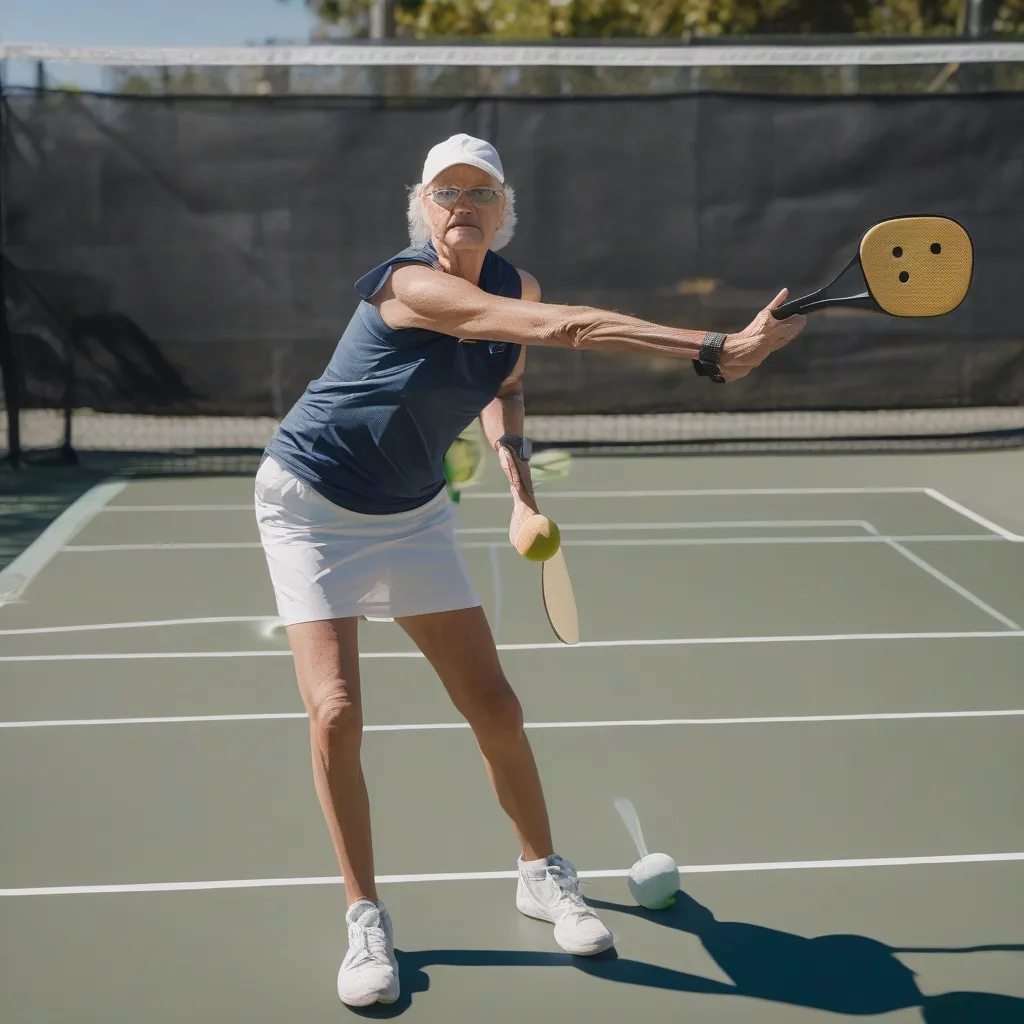Imagine this: you’re down a point, the pressure’s on, and your opponent just dinked a perfect shot. Your instinct screams, “Smash it!” But hold on. Mastering strategic patience in pickleball is about knowing when to attack and when to wait, when to pounce and when to… pickle. It’s about outsmarting your opponent, not overpowering them. This article dives deep into the art of patience in pickleball, exploring how to develop this crucial skill and dominate the court.
The Importance of Patience in Pickleball
Patience isn’t just a virtue; it’s a winning strategy in pickleball. It’s the foundation for controlled aggression, allowing you to dictate the pace of the game and capitalize on your opponent’s weaknesses. Why is it so crucial?
Dictating the Rally
Patience allows you to wait for the optimal shot, rather than rushing a less-than-ideal return. Think of it as setting a trap: you lure your opponent into a vulnerable position before unleashing your winning shot. This strategic approach minimizes unforced errors and maximizes your chances of scoring.
Reducing Unforced Errors
Impatience often leads to hitting the ball out of bounds or into the net. By practicing patience, you’ll make fewer mistakes and keep the pressure on your opponent. As the saying goes, “Slow and steady wins the race” – or in this case, the pickleball match.
Creating Opportunities
Patience creates opportunities for offensive put-aways. By waiting for the perfect setup – like a high, floating volley – you can execute a powerful shot that’s difficult to return. This allows you to take control of the rally and dictate the outcome.
Developing Strategic Patience
Developing patience requires discipline and a shift in mindset. It’s not about being passive; it’s about being strategically aggressive. Here’s how to cultivate this vital skill:
Focus on Placement Over Power
Instead of aiming for outright winners every time, focus on placing the ball strategically. Aim for deep corners, force your opponent to move, and wait for the opportunity to attack. This approach is far more effective than simply trying to hit the ball as hard as you can. Check out our article on using strategic angles to open the court for more on this topic: using strategic angles to open the court.
Embrace the Dink Game
The dink game is the ultimate test of patience in pickleball. It’s about soft, controlled shots that keep the ball low and force your opponents to make mistakes. Mastering the dink game is essential for developing strategic patience. For those looking to refine their dinking skills, our guide on mastering the drop volley is a valuable resource: techniques for mastering the pickleball drop volley.
Visualize the Point
Before you even step onto the court, visualize how you want the point to play out. Imagine yourself waiting for the perfect opportunity, executing your shots with precision, and ultimately winning the point. Visualization is a powerful tool for developing patience and improving your overall game.
Practice, Practice, Practice
Like any skill, patience in pickleball takes practice. Start by incorporating patience drills into your training routine. Focus on controlling the pace of the rally, waiting for the right shot, and placing the ball strategically. Over time, these drills will become second nature.
Advanced Strategies for Patience
Once you’ve grasped the basics of strategic patience, it’s time to explore more advanced techniques.
Reading Your Opponent
Observe your opponent’s strengths and weaknesses. Are they impatient? Do they favor a particular side of the court? Use this information to your advantage. If they’re impatient, lure them into making unforced errors. If they favor a certain side, exploit their weakness by forcing them to move.
Developing a Game Plan
A solid game plan is crucial for success in pickleball. Develop a strategy that incorporates patience and adapts to your opponent’s playing style. Learn more about developing a game plan in our dedicated article: developing a game plan for competitive pickleball.
Controlling Your Emotions
Pickleball can be an emotional game. It’s important to stay calm and focused, even when things aren’t going your way. Frustration leads to impatience, which can derail your entire game.
The Patience Payoff
“Patience is not passive; on the contrary, it is concentrated strength,” as Bruce Lee once said. This rings true in pickleball. Strategic patience doesn’t just improve your game; it transforms it. By embracing patience, you’ll become a more calculated, controlled, and ultimately, successful pickleball player. Consider exploring the advantages of elongated pickleball paddles for enhanced reach and control: advantages of elongated pickleball paddles. You can also learn more about strategic shot accuracy in our dedicated article: best strategic methods for developing shot accuracy.
 Mastering Strategic Patience in Pickleball
Mastering Strategic Patience in Pickleball
Conclusion
Mastering strategic patience is the cornerstone of successful pickleball play. It’s about being mindful, disciplined, and strategically aggressive. By incorporating the principles and strategies discussed in this article, you’ll transform your game, reduce unforced errors, and create more opportunities to dominate the court. Remember, patience isn’t just about waiting; it’s about waiting for the right moment.
We encourage you to share your thoughts and experiences with patience in pickleball. What strategies have you found most effective? Leave a comment below and let’s continue the conversation.
- Baker, Joe (Author)
- English (Publication Language)
- Bond, Payton (Author)
- English (Publication Language)
- Anderson, Brian (Author)
- English (Publication Language)
- Hall, Dennis (Author)
- English (Publication Language)
- Foster, Blake (Author)
- English (Publication Language)
- Publishing, Fitness Research (Author)
- English (Publication Language)
- Arthur, S. M. (Author)
- English (Publication Language)
- Callahan, John (Author)
- English (Publication Language)
- Forbes, Meganne (Author)
- English (Publication Language)
- Baker, Joe (Author)
- English (Publication Language)









